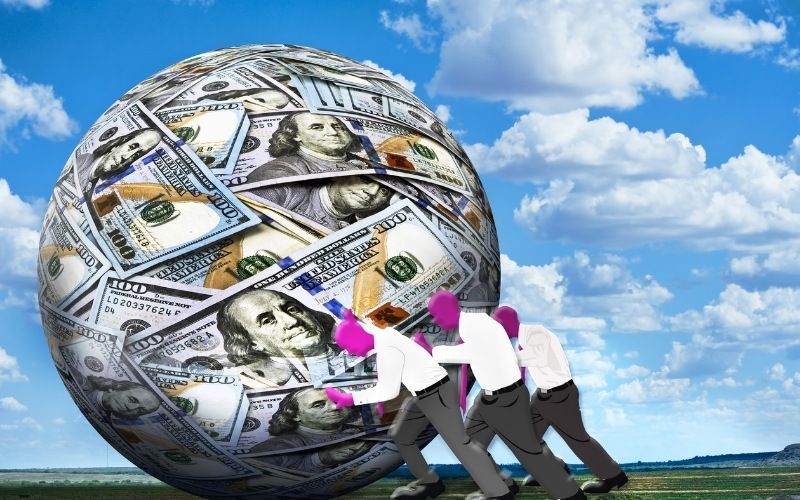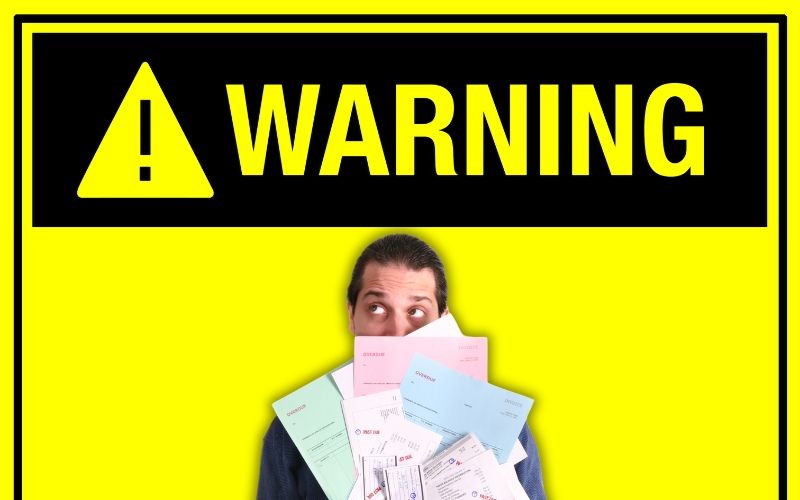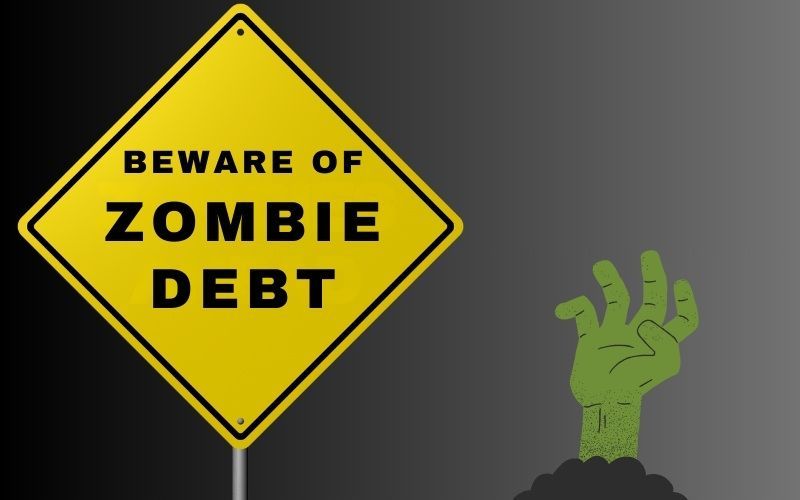5 Ways To Save Money Every Month
Last Updated: March 14, 2024
Save Smarter, Not Harder

In today's economy, finding ways to save money each month is more important than ever. Whether you're looking to build your emergency fund, save for a big purchase, or simply improve your financial health, small changes to your spending habits can lead to significant savings.
In this article, we'll explore practical and easy-to-implement strategies that can help you cut costs and boost your savings every month. From automating your savings to leveraging technology for smarter shopping, these tips will guide you on your journey to financial wellness.
Don't want to read through? Speak to a debt specialist right now.
1. Change Your Utility Providers
Things like heating, electricity, water, city tax, and various other bills are things that everyone has to pay, but most people also pay more than they need to for the exact same services. Given that most utility industries are so competitive, it shouldn’t come as any surprise that there are many other options out there, some of which may be much more attractive to you.
Thanks to price comparison websites, it only takes a matter of minutes to find out how much you could be saving by switching to a new utility company. However, don’t be attracted only by a short-term deal, and instead think of the longer-term saving possibilities when choosing a new utility company.
Specifying top utility comparisons websites like
EnergySage and
SaveOnEnergy can help you find better rates on electricity, solar, and more.
While researching new plans may take 1-2 hours upfront, it could save you $500+ per year. Just be sure to watch out for teaser rates that increase after a short introductory period from new companies.
2. Change Your Phone Provider or Plan
Many people pay far more than they need to for their mobile phones, and consumers are often fooled by the lure of expensive new phones offered for free in return for an overpriced contract that is difficult to get out of. However, being another competitive industry, the cost of mobile calls, text messages and even mobile Internet has dropped drastically in recent years, so there’s no need to be paying more than absolutely necessary.
Unless you are a heavy mobile user, you will likely find it preferable to go for a prepaid plan so that you are not bound by any contracts or likely to fall victim to any surprise bills.
Using prepaid plan finders like WhistleOut and usage calculators like BillCutterz can help you compare plans accurately. An individual user may save $300/year by switching from a postpaid to a prepaid plan. A family could save $500-800/year. Providers like Metro by T-Mobile offer unlimited prepaid plans for around $50/month per line.
3. Stop Paying Interest
Unless they are in the process of being paid off, most debts continue to cost you money in interest to the extent that the monthly payments can put a huge dent in your income. Irresponsible use of credit cards, overdrafts, loans, and other lines of credit can quickly lead to you spiraling deeper into debt.
To avoid paying interest, pay off your debts as soon as possible, but if your income is not great enough to pay them off within a few months, you may want to consider consolidating your debts and transferring them to an interest-free balance transfer credit card or debt consolidation loan.
This way, you’ll have to pay a one-time fee (on the balance transfer card), after which you’ll have a certain amount of time (typically six to 36 months) to pay off the debt without paying any more interest.
With average credit card interest rates between 16-24% APR and personal loan rates from 9-36% APR, repaying high-interest debts quickly can lead to huge savings. Use our debt payoff calculator to estimate interest savings. Remember to focus on the highest-interest debts first.
4. Buy in Bulk
Buying in bulk, whether shopping for groceries, stationary, cleaning products, or anything else that you use on a daily basis, is invariably cheaper than any other option. However, many people are put off spending a large amount of money in one hit, failing to take into account the long-term savings in the process.
Instead, consider doing your grocery shopping at a discount supermarket, Costco, or other such venues that primarily cater to businesses seeking wholesale prices. You might need a membership card, but they are usually not difficult to get, and you can often borrow one from a friend without any problem.
Saving money by buying in bulk also applies to things like subscriptions, whereby you can purchase things like computer software and prepaid mobile cards that will last you for a year or more.
Creating a monthly essentials inventory before bulk ordering can prevent overbuying. Order non-perishable items online at wholesale retailers like Boxed or Costco to maximize cost savings - calculate per unit price differences. Stock up on household items like shampoo, detergent, paper goods, OTC meds, and pet supplies.
5. Change Your Banking Habits

Many people spend more than they need to on their day-to-day banking, either in overdraft interest fees, withdrawal fees, poor exchange rates abroad, money transfer fees, or even monthly fees just to keep the account open. Your requirements will vary depending on your lifestyle and your priorities, but there are some tips that apply across the broad.
For a start, if you use a credit card, make sure you only use it for emergencies, and be sure to pay the bill off in full every month so that you avoid paying interest. You should also consider opening a savings account if you don’t have one already, since you’ll be able to earn a small amount of interest on what you save, and it’s always wise to set aside some money for a rainy day.
As is the case with just about anything else, you can compare bank accounts and other financial services online until you find something that better suits your particular requirements. Saving money and getting control over your financial affairs is more about making a few changes to your spending habits rather than sacrificing the things you love.
By taking time to more closely examine your outgoings, you could be surprised by just how much extra cash you can put aside each month. Online checking/savings accounts offer free services, worldwide ATM withdrawal reimbursement, and no minimums compared to $150-$350/year in traditional bank fees. High-yield online savings accounts can earn over 3% APY versus just 0.01% at brick-and-mortar.
For those who have mastered these strategies and are looking for more ways to improve their savings, here are 25 additional tips to save money more effectively.
FAQs
-
How much time does it take to research and switch utility providers?
It typically takes 1-2 hours to research new utility plans and providers in your area. This includes comparing rates and reading reviews. The actual switching process may take up to 1 month depending on the utility. In the long run, the upfront time investment pays off through years of savings.
-
What should I look for in a prepaid cell phone plan?
The key factors to compare are monthly cost, data amount included, network coverage in your area, overage charges, and any other perks like mobile hotspot access or international calling. Pick a prepaid carrier that uses one of the major national networks for the best coverage.
-
Where can I learn more about consolidating debt?
If you're interested in consolidating your debt, our website offers a wealth of information on various debt consolidation options and strategies that can help you pay off your debts while saving on interest charges. We encourage you to explore our debt consolidation loan page or dive into our blog posts covering balance transfer cards and other effective consolidation techniques. Additionally, you can make use of our debt payoff calculator to get an estimate of the potential savings you could achieve through interest reduction. For a comprehensive overview on debt consolidation and its mechanics, visit our guide on what is debt consolidation and how does it work.
-
What are the best places to buy household items and groceries in bulk online?
Top online retailers for bulk buying include Boxed, Amazon Prime, Sam's Club, and Costco. They offer bulk pricing on household essentials like paper products, cleaning supplies, OTC medications, pet food, and more. For bulk groceries, services like Amazon Subscribe & Save allow you to customize recurring deliveries.
-
How do online and traditional bank accounts compare?
Online banks tend to offer the best terms, with no minimum balance requirements, unlimited transactions, worldwide ATM fee reimbursement, and higher interest rates. Traditional banks average $150-$350 in annual account fees and offer interest rates near 0%.
Conclusion
Saving money each month comes down to making smart choices in your spending and banking habits. Learn about
the fastest ways to save money to speed up your financial goals. While it may take some research upfront, switching utility providers, prepaid phone plans, buying in bulk, and finding the right banking products can lead to significant savings over time.
Small changes like consolidating high-interest debts, limiting impulse purchases, and utilizing holiday credit card hacks also quickly add up, especially during the season of giving. With a bit of effort to find better rates and maximize what you already spend on necessities, you can consistently put aside more money each month to grow your savings and reach your financial goals faster. The payoff of short-term sacrifices for long-term gain is worth it.
If you are struggling with overwhelming debt and want to explore your debt relief options, Pacific Debt Relief offers a
free consultation to assess your financial situation. Our debt specialists can provide objective guidance relevant information and support to help find the right debt relief solution.
For more information and to learn more about Personal Finance Tips please visit our
Personal Finance Page
Are you ready for debt relief help now?
Get Free Consultation- Accredited by Better Business Bureau with BBB A+ rating(4.93 rating and 1678 reviews)
- US News and World Reports and Bankrate ranked Pacific Debt Relief as one of “The Best Debt Relief Companies of 2024”
- 6.9 star rating by BestCompany.com (over 2379 client reviews)
- 4.8 star rating by TrustPilot based (over 1613 verified consumer reviews)
- ConsumerAffairs.com Accredited (over 544 verified reviews with an average rating of 5 stars)
- A Top 10 Rated Company by TopTenReviews.com , ConsumersAdvocate.com and Top10debtconsolidation.com
- 4.6 star rating by Google (229 client reviews)
- 100% rating by SuperMoney (9 client reviews)

Pacific Debt Relief
750 B Street Suite 1700
San Diego, CA 92101
Hours of Operation
Mon-Thurs: 6am - 7pm PST
Friday: 6am - 4:30pm PST
Saturday: 7:30am - 4:30pm PST
Clients
Phone: (877) 722-3328
Fax: (619) 238-6709
Email: cs@pacificdebt.com
Non-Clients
Phone: (833) 865-2028
Fax: (619) 238-6709
Email: inquiries@pacificdebt.com
"To eliminate debt one household at a time, while placing people first." - Pacific Debt
© 2024 Pacific Debt Inc. dba Pacific Debt Relief, all rights reserved.
California Privacy Policy |  Do Not Sell My Personal Information
Do Not Sell My Personal Information
GLBA Privacy Notice | CDRI Accredited Member
*We do not discriminate on the basis of race, color, religion, sex, marital status, national origin or ancestry.
*Please note that all calls with the company may be recorded or monitored for quality assurance and training purposes.
*Your visit to our website may be monitored and recorded from essential 3rd party scripts.
*Clients who make all their monthly program deposits pay approximately 50% of their enrolled balance before fees, or 65% to 85% including fees, over 24 to 48 months (some programs lengths can go higher). Not all clients are able to complete our program for various reasons, including their ability to save sufficient funds. Our estimates are based on prior results, which will vary depending on your specific circumstances. We do not guarantee that your debts will be resolved for a specific amount or percentage or within a specific period of time. We do not assume your debts, make monthly payments to creditors or provide tax, bankruptcy, accounting or legal advice or credit repair services. Pacific Debt is not a credit repair firm nor do we offer credit repair services. Our service is not available in all states and our fees may vary from state to state. Please contact a tax professional to discuss potential tax consequences of less than full balance debt resolution. Read and understand all program materials prior to enrollment. The use of debt settlement services will likely adversely affect your creditworthiness, may result in you being subject to collections or being sued by creditors or collectors and may increase the outstanding balances of your enrolled accounts due to the accrual of fees and interest. However, negotiated settlements we obtain on your behalf resolve the entire account, including all accrued fees and interest. C.P.D. Reg. No. T.S. 12-03825.









